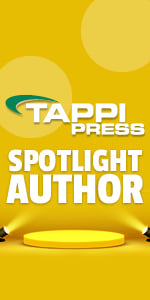 Scott Rosencrance
Scott Rosencrance

Scott Rosencrance is a Senior Manager at Kemira. He  currently leads the Marketing and Technical applications organization for Pulping and Defoaming in the Americas. Scott used his broad business and technical skills as part of a senior management team to create a new state of the art R&D center for Kemira in Atlanta. The center has successfully combined fundamental research and commercial applications expertise into a best in class innovative product development facility. He has served as an adjunct assistant professor for the University of Minnesota’s Department of Bioscience Engineering, the Chemistry Advisory Board for Fairmont State University and Kennesaw State University’s Biochemistry and Chemistry Advisory Board. He is the author of more than 75 patents and publications and is the recipient of the George Westinghouse Signature Award for excellence from Westinghouse R&D.
currently leads the Marketing and Technical applications organization for Pulping and Defoaming in the Americas. Scott used his broad business and technical skills as part of a senior management team to create a new state of the art R&D center for Kemira in Atlanta. The center has successfully combined fundamental research and commercial applications expertise into a best in class innovative product development facility. He has served as an adjunct assistant professor for the University of Minnesota’s Department of Bioscience Engineering, the Chemistry Advisory Board for Fairmont State University and Kennesaw State University’s Biochemistry and Chemistry Advisory Board. He is the author of more than 75 patents and publications and is the recipient of the George Westinghouse Signature Award for excellence from Westinghouse R&D.
Scott has been a member of TAPPI since 1998. As a TAPPI member, Scott has participated in many conferences and served as chair for many sessions. He has also served as a member of the Advisory Board for the Progress in Paper Recycling journal, which is now part of TAPPI Journal. He joined the TAPPI Journal Editorial Board in 2009. Scott served as the Editor in Chief for TAPPI Journal as well as the Chair for the Papermaking Additives committee of TAPPI. He continues to be very involved in PaperCon leadership and is a member of TAPPI’s local sections. He is co-editor with Marty Hubbe and a contributing author in “Advances in Papermaking Wet End Chemistry Application Technologies” and “Make Paper Products Stand Out: Strategic Use of Wet End Chemical Additives," both published by TAPPI Press.
1. When did you first realize you wanted to be a writer?
I was in graduate school in my early twenties when I began to enjoy writing. As I gained experience and entered the workforce, I began to appreciate the value of written communication more. Now, after many years of writing, I find that writing is very relaxing and satisfying.
2. What is your work schedule like when you’re writing for a TAPPI publication?
Most of the time I find myself writing in the late evening once the work day is complete or very early before the hectic pace of the work day begins. Much of the administrative side of writing and coordinating writing occurs instantaneously via email and text messages these days.
3. What advice do you have for anyone considering writing for a TAPPI publication?
Don’t hesitate! Start immediately and try to make an impact for years to come. The relationships and contacts that result through TAPPI are extremely enjoyable.
